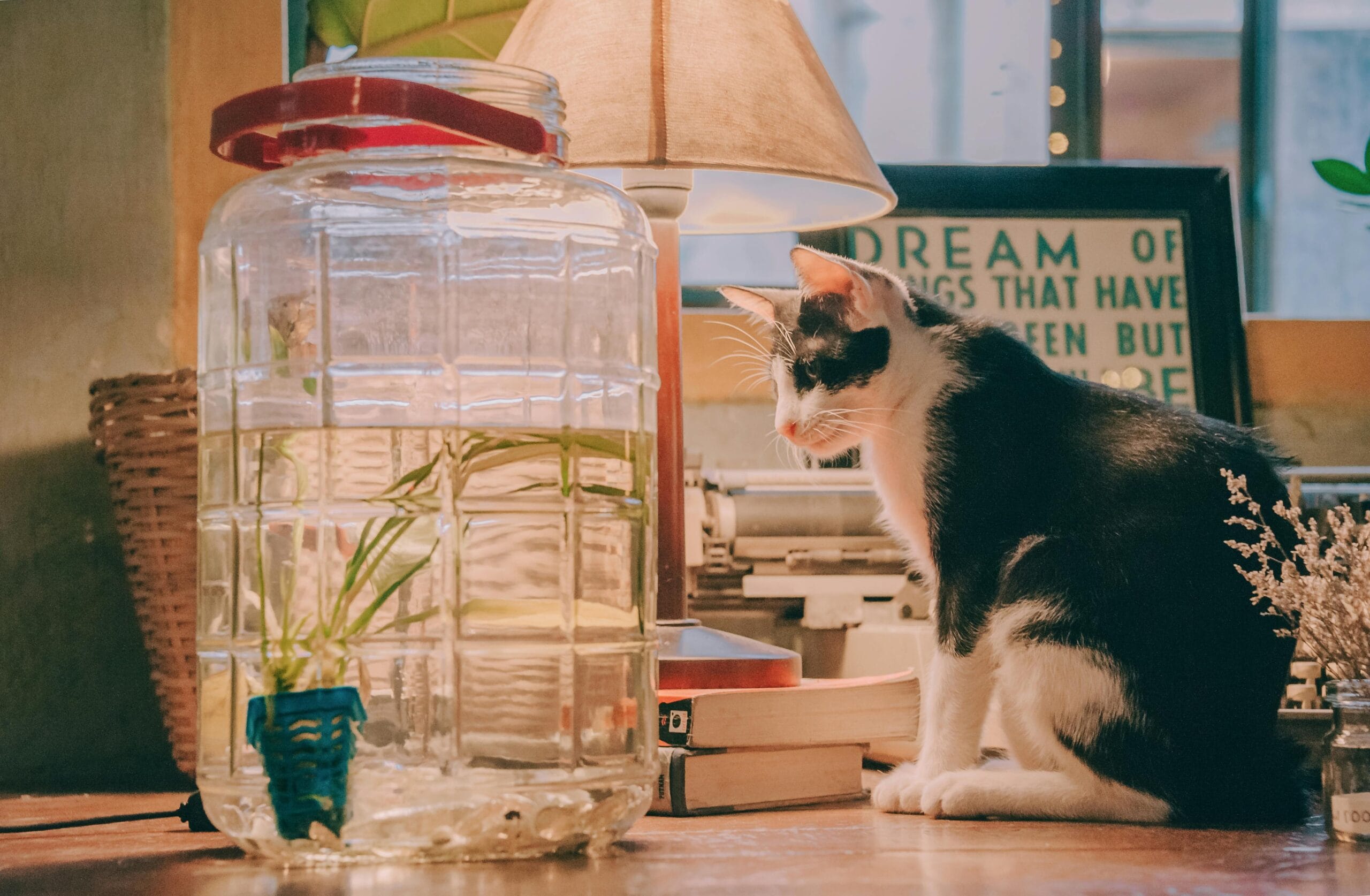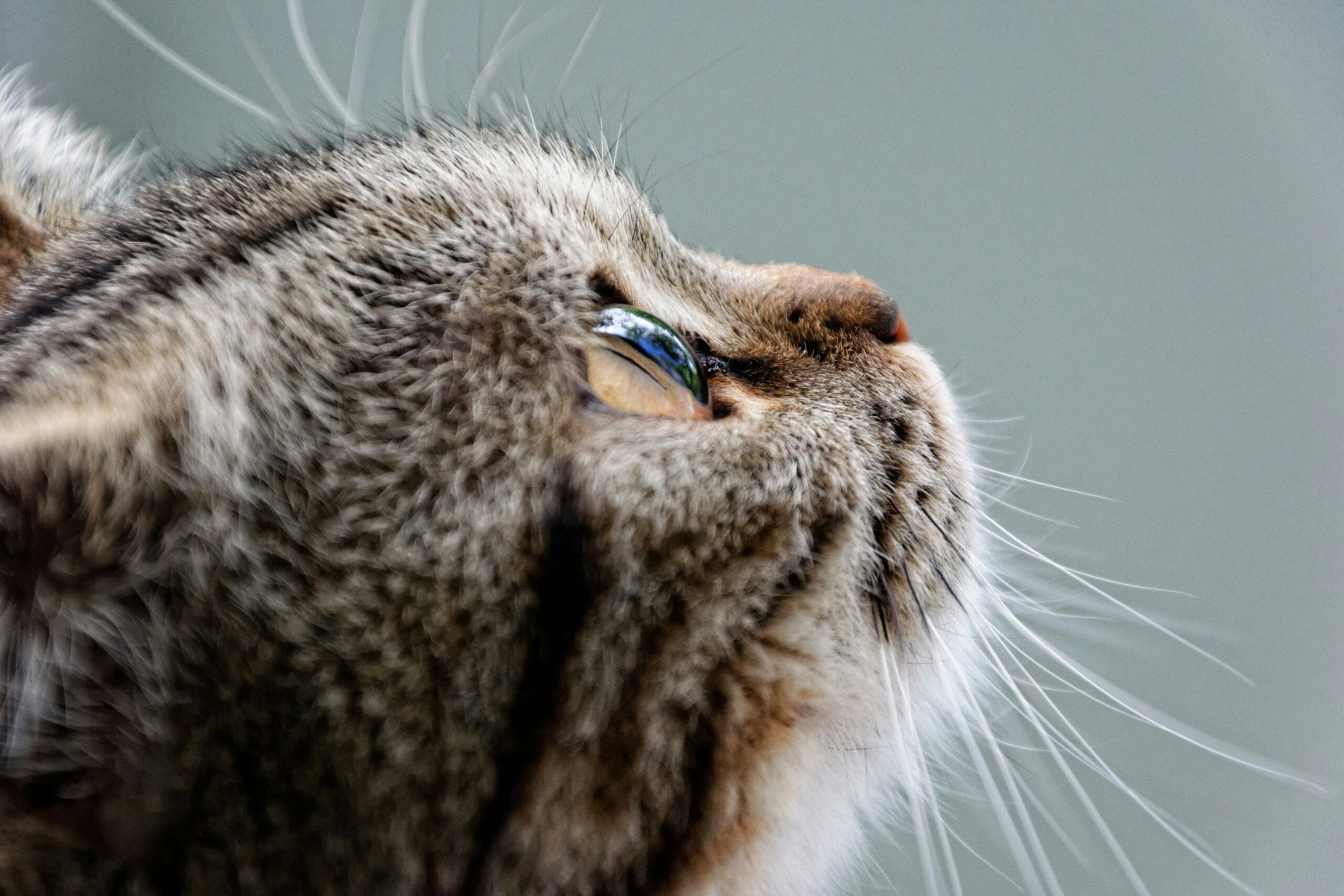Why Is My Cat Coughing ?

Worried about your cat’s cough? Learn why is my cat coughing, identify the sounds, and discover effective cat coughing remedies. Get expert advice and peace of mind now!
Why Is My Cat Coughing? A Comprehensive Guide
Hearing your feline friend cough can be alarming. A simple cough might be nothing, but it could also be a sign of a more serious underlying health issue. Understanding why is my cat coughing is crucial for providing the best possible care. This comprehensive guide will explore various reasons for cat coughing, different cat cough sounds, potential cat coughing remedies, and when to seek veterinary attention.
Understanding Cat Cough Sounds
Before diving into the causes, let’s address the different sounds your cat’s cough might make. Identifying the specific sound can provide valuable clues to your vet. A dry, hacking cough might indicate irritation in the upper respiratory tract, while a wet, rattling cough suggests fluid buildup. A harsh, forceful cough could signal a more serious condition. Keeping a record of the frequency and sound of your cat’s cough will be helpful during a veterinary visit.
Common Causes of Cat Coughing
Several factors can contribute to your cat coughing. These range from relatively benign issues to more severe illnesses requiring immediate veterinary care. Let’s explore some of the most common causes:
Upper Respiratory Infections (URIs)
URIs are among the most common reasons for cat coughing. These infections, often caused by viruses like feline herpesvirus and calicivirus, can lead to sneezing, nasal discharge, eye discharge, and a persistent cough. Symptoms can range from mild to severe, and some cats may only experience a cough. Treatment often involves supportive care, such as hydration and rest, although antiviral medications may be necessary in severe cases.
Asthma
Feline asthma, a chronic respiratory disease, causes inflammation and narrowing of the airways. This narrowing can lead to coughing, wheezing, and difficulty breathing. The cough in asthma can be particularly distressing, often sounding harsh and wheezy. Diagnosis requires a veterinary examination, and treatment typically involves bronchodilators and corticosteroids to manage inflammation and improve breathing. For more information on feline asthma and treatment options, you can check out the resources available at the ASPCA website.
Pneumonia
Pneumonia, an infection of the lungs, can cause a severe and persistent cough. This condition can be caused by bacteria, viruses, or fungi and often presents with other symptoms like fever, lethargy, and difficulty breathing. Cat coughing remedies for pneumonia are usually prescribed by a vet and involve antibiotics or antifungals depending on the underlying cause. Early diagnosis and treatment are crucial to prevent serious complications. This is a more serious condition and requires immediate veterinary attention.
Heart Disease
In some cases, a cough can be a sign of heart disease. Fluid buildup in the lungs, a common complication of heart failure, can lead to a persistent, wet cough. Other symptoms may include lethargy, shortness of breath, and weight loss. If you suspect heart disease, it is crucial to consult your veterinarian immediately. They will perform a thorough examination and recommend appropriate testing to determine the cause and severity of the condition.
Foreign Body Aspiration
Cats, especially kittens, can accidentally inhale small objects like food particles or toys. These foreign bodies can lodge in the airways, causing irritation and coughing. If you suspect your cat has aspirated a foreign object, seek immediate veterinary attention as this can be life-threatening. Removal of the foreign body is essential.
Irritants
Exposure to irritants such as dust, smoke, or strong chemicals can trigger coughing. If you suspect environmental factors are causing your cat’s cough, try to identify and eliminate the irritant. Improve your home’s air quality, ensure adequate ventilation and consider using an air purifier.
Cancer
While less common, lung cancer or other cancers that affect the respiratory system can cause coughing. The cough associated with cancer may be persistent and accompanied by other symptoms such as weight loss, lethargy, and difficulty breathing. A comprehensive veterinary examination is necessary to rule out this possibility.
Cat Coughing Remedies: When to Seek Veterinary Care
While some mild coughing may resolve on its own, it’s crucial to monitor your cat closely. If the cough persists for more than a day or two, worsens, or is accompanied by other symptoms like lethargy, fever, difficulty breathing, or changes in appetite, it’s essential to consult your veterinarian. They can provide an accurate diagnosis and recommend appropriate cat coughing remedies. Early intervention can significantly improve your cat’s prognosis and prevent potential complications.
Self-treating your cat’s cough is strongly discouraged. Many over-the-counter medications are toxic to cats. Always consult your vet before administering any medication to your cat, even seemingly harmless remedies. Your vet can diagnose the underlying cause and recommend the most appropriate and safe course of treatment based on your cat’s individual needs and the severity of the cough.
For more detailed information on feline respiratory diseases, you can consult resources from the Veterinary Information Network (VIN), a trusted source for veterinary professionals and pet owners.
Home Care and Supportive Measures
While you should always seek professional veterinary care for persistent or severe coughing, there are some supportive measures you can take at home to comfort your cat:
- Ensure your cat has access to fresh water at all times. Hydration is crucial, especially if your cat is experiencing a respiratory illness.
- Provide a quiet and comfortable resting place away from drafts and irritants.
- Monitor your cat’s appetite and hydration levels closely.
- Keep your home clean and free of dust and other potential irritants.
- Consider using a humidifier to add moisture to the air, which can help soothe irritated airways.
Remember, these measures are supportive only and should not replace professional veterinary care. Your veterinarian is your best resource for diagnosing and treating your cat’s cough.
Different Types of Cat Coughs and Their Significance
As mentioned earlier, the sound of your cat’s cough can offer clues about the underlying cause. A dry, hacking cough often indicates irritation in the upper respiratory tract, possibly due to a URI or allergies. A wet, rattling cough suggests fluid buildup in the lungs, potentially due to pneumonia or heart disease. A harsh, forceful cough can be a sign of asthma or a more severe underlying condition. Observing the type of cough will help your vet diagnose more efficiently.
Preventing Cat Coughs
While not all coughs are preventable, you can take steps to minimize your cat’s risk of developing respiratory illnesses:
- Keep your cat’s vaccinations up to date. This is especially important for preventing viral infections that can lead to coughing.
- Avoid exposure to sick animals. Cats can easily catch respiratory infections from other cats.
- Maintain a clean and hygienic environment for your cat.
- Provide a healthy diet and ensure your cat gets regular exercise.
- Manage stress. Stress can weaken your cat’s immune system, making it more susceptible to illness.
Regular veterinary checkups are also essential to detect any health problems early on. Early detection and treatment can significantly improve your cat’s prognosis and prevent complications.
For further reading on feline health and wellness, explore the wealth of information available from the Cornell University College of Veterinary Medicine.
Conclusion: Addressing Why Is My Cat Coughing
Understanding why is my cat coughing is critical for providing the best possible care. From minor irritants to serious medical conditions, a cough can indicate a range of health issues. Paying close attention to the type of cough, its frequency, and accompanying symptoms is essential. Always consult your veterinarian for accurate diagnosis and treatment. Don’t delay seeking professional help if your cat’s cough persists or worsens. Prompt veterinary care can help ensure your feline friend’s health and well-being.
Share Your Experiences!
Have you experienced a similar situation with your cat? Share your experiences, including the symptoms, diagnosis, and treatment received, in the comments below. Your insights and experiences can be invaluable to other pet owners facing similar concerns regarding cat coughing remedies and understanding cat cough sounds. Let’s help each other navigate this challenging aspect of cat ownership!

FAQ: Why Is My Cat Coughing?
1. Q: My cat is coughing. Is it serious?
A: A cough in cats can range from a minor irritation to a sign of a serious illness like asthma, feline infectious peritonitis (FIP), or heart disease. Seek veterinary attention if the cough persists, is severe, or accompanied by other symptoms like lethargy, sneezing, or difficulty breathing.
2. Q: What does a cat cough sound like?
A: Cat cough sounds vary. Some are dry and hacking, others are wet and rattling. A harsh, forceful cough can indicate a more serious problem. If you’re unsure, a vet can diagnose the cause.
3. Q: What are some common causes of cat coughing?
A: Common causes include upper respiratory infections (URIs), asthma, allergies, hairballs, foreign bodies lodged in the airway, and heart disease. Less common causes require veterinary diagnosis.
4. Q: My cat has a wet cough. What could it be?
A: A wet cough often suggests fluid in the lungs, possibly due to pneumonia, heart disease, or other lung conditions. Immediate veterinary attention is advisable.
5. Q: My cat has a dry cough. What could it be?
A: A dry cough could indicate an irritant in the airways (like dust or smoke), an allergic reaction, asthma, or a viral infection. A vet visit is needed for proper diagnosis and treatment.
6. Q: Are there any home remedies for a cat cough?
A: While some mild coughs might improve with rest and hydration, cat coughing remedies shouldn’t replace veterinary care. Do not attempt to self-treat.
7. Q: How can I prevent my cat from coughing?
A: Regular vet checkups, a clean environment, proper nutrition, and avoiding exposure to irritants like smoke can help prevent many causes of coughing.
8. Q: When should I take my cat to the vet for a cough?
A: Take your cat to the vet if the cough persists for more than a day or two, is severe, is accompanied by other symptoms (lethargy, fever, difficulty breathing), or if you’re concerned.
9. Q: My cat is coughing up white foam. Is this serious?
A: Coughing up white foam can indicate a serious underlying condition such as heart failure or pneumonia. This warrants immediate veterinary attention.
10. Q: What tests might the vet perform to diagnose my cat’s cough?
A: Your vet may perform a physical exam, listen to your cat’s chest, and possibly recommend blood tests, X-rays, or other diagnostic tests to determine the cause of the cough and recommend appropriate treatment.

Why Is My Cat Coughing? Practical Tips and Health Considerations
A coughing cat can be worrying, but understanding the potential causes is the first step to helping them. This guide provides practical tips and important health considerations for addressing your cat’s cough.
Possible Causes of Cat Coughs
Cat coughs can stem from various issues, ranging from minor irritants to serious illnesses. Common causes include:
- Upper Respiratory Infections (URIs): Viral or bacterial infections are frequent culprits, often accompanied by sneezing, nasal discharge, and lethargy.
- Asthma: Similar to human asthma, feline asthma causes inflammation and narrowing of the airways, leading to coughing and wheezing.
- Pneumonia: A lung infection that can be caused by bacteria, viruses, or fungi, resulting in severe coughing, difficulty breathing, and fever.
- Heart Disease: In some cases, heart conditions can cause fluid buildup in the lungs, leading to a cough.
- Foreign Bodies: Inhaled irritants like grass seeds or dust can trigger coughing.
- Allergies: Similar to humans, cats can experience allergic reactions to pollen, dust mites, or other allergens, causing coughing and sneezing.
When to Seek Veterinary Care
While some coughs may resolve on their own, it’s crucial to consult a veterinarian if your cat exhibits:
- Persistent or worsening cough
- Difficulty breathing or rapid breathing
- Lethargy or loss of appetite
- Fever
- Nasal discharge or sneezing
- Vomiting
Practical Tips for Managing a Coughing Cat
While professional veterinary care is essential for diagnosis and treatment, you can take some steps to support your cat’s comfort:
- Provide a clean and dust-free environment: Regularly clean your home, especially bedding and litter boxes.
- Ensure adequate hydration: Encourage water intake by providing fresh water frequently.
- Reduce stress: A calm and secure environment can help alleviate stress, potentially reducing coughing triggered by anxiety.
- Monitor food and water intake: Note any changes in appetite or drinking habits, reporting them to your vet.
- Avoid smoke and harsh chemicals: These irritants can worsen respiratory issues.
Keywords:
cat coughing, cat cough, feline cough, cat respiratory problems, cat asthma, cat pneumonia, cat URI, veterinary care, cat health